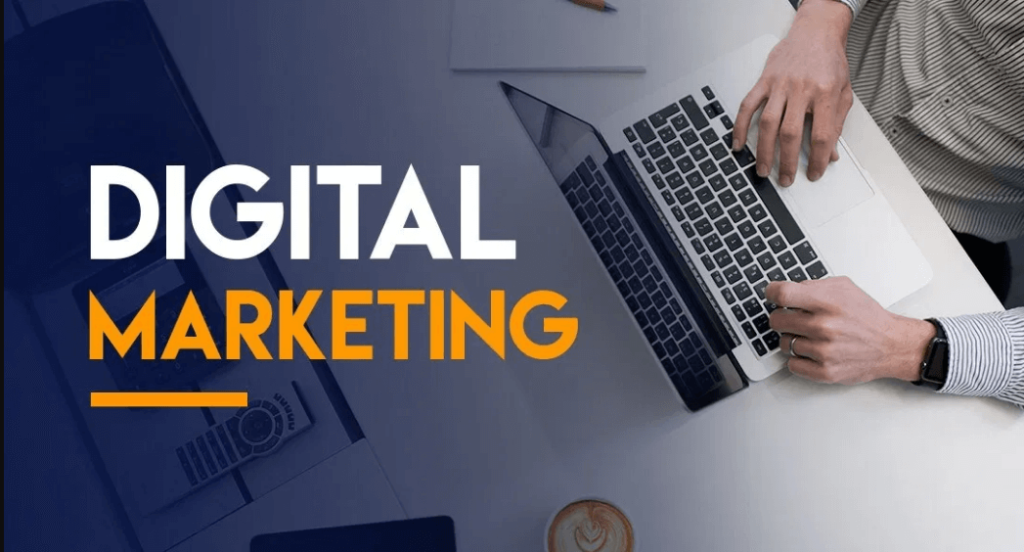
The Internet has changed how marketing works to a huge degree and enabled anyone with an Internet connection to develop a marketing strategy that once would once have required a lot of money for advertising materials. Nowadays, you can use the Internet and social media to create an effective digital marketing strategy for very cheap or even free!
Regardless of what exact kind of business you run, you will almost definitely need to advertise and promote it successfully in order to attract customers or clients and turn a profit. Whether you are B2B or B2C, knowing how to use digital marketing techniques is vital for doing business in 2020, and this is very unlikely to change in the future.
Digital marketing has a few different components. Using as many of these as possible gives your digital marketing strategy the highest chance of success. To learn more about courses that offer digital marketing courses, click here.
Types of Digital Marketing
Social Media Marketing
Social media marketing is exactly what it sounds like: using social media sites and apps to market your business or products. Social media is now a vital part of marketing, and businesses that do not use it to its potential are often doomed to fail.
Deciding which social media sites to advertise on is very important. Most social media sites are free to sign up for and use, so there really isn’t much to lose by checking them out and signing up. However, an account that never posts, or posts the wrong kind of content, can actually do more harm than good in some cases. For example, a social media account that is never checked or monitored may have customers or potential customers trying to contact you and getting no answer, which can harm your business’ reputation. There is no point in signing up for a social media site if you don’t keep it updated and maintained. Social media is a very useful way of increasing your visibility to an audience that would otherwise be unlikely to go out of its way to visit your website. There is also often the option to pay to boost content on platforms like Facebook and Twitter!
Email Marketing
You may think that email marketing is outdated and irrelevant, but you would be wrong. Email marketing is a core part of most businesses’ strategy. Not every potential customer uses social media, after all. Although email marketing requires you to have the email address of a potential client or customer in the first place, this can actually be a blessing in disguise. Using a mailing list or newsletter that people can sign up for means that your marketing messages will be seen only by people who are interested in your company, so although the range of exposure is reduced, the chance of each person who sees the emails being interested in your products or services is significantly higher.
PPC (or Pay-Per-Click) Advertising
PPC is a form of digital marketing where businesses pay a small fee whenever an Internet user clicks on one of their advertisements. This is usually done via search engines like Google. Businesses bid on searched keywords for their advertisement to show up in the search results of that keyword. The Google Ads platform is the most widely used PPC platform.
Affiliate Marketing
Affiliate marketing is a process by which marketers promote (for example, through blog links or links on their websites) other people’s brands, and in exchange receive a commission from each sale of the product or service that they have promoted. Getting in touch with affiliate marketers and getting them to promote your business can be a mutually profitable choice!
SEO (or Search Engine Optimization)
Search engine optimization is the practice of optimizing your online content (such as your business website or landing page) to appear as high up in search engine results as possible. The process of SEO involves choosing keywords (which can be done by using analytics) that potential customers may be searching for online, and including those keywords, and variations of them, in your online content. That’s a simple explanation of SEO at least — it is actually a complex science.
How to Use Digital Marketing Effectively
Whichever of these types of digital marketing you decide to use, it is important to understand the techniques behind using them. The techniques that you will need to use are mostly the same as traditional marketing techniques, just optimized for the digital age.
Buyer Personas
One of the first things that you need to do when planning any kind of marketing strategy is to determine your buyer persona or personas. A buyer persona is a fictional buyer (who you may or may not decide to give a name) that you design your marketing strategy to appeal to. A buyer persona is a composite of all of the traits and demographics of your customer base. You can use existing customer data and statistics to create a buyer persona, or even come up with a new one if you are trying to appeal to a new target market. Everything in your marketing strategy will be informed by, and designed to appeal to, your buyer persona. This will also help you narrow down things such as which social media sites to use.
Brand Personas
If a buyer persona is your fictional customer, your brand persona is what your business would be if it were a person. The trick is to design a brand persona that appeals to your buyer persona. Every communication and piece of content used as part of your digital marketing strategy should ideally reflect your brand persona. In some cases, a brand persona is formal and highly professional, in others it may be subversive or humorous. The best strategy will depend on what industry your business is in and what niche in that industry it occupies.
Content Calendars
A content calendar is a useful way of planning out what content is going to be posted from your social media accounts, via your marketing emails, and every other aspect of your digital marketing strategy. Considering what times your target demographic may be online is a good way of developing an efficient content calendar.




More Stories
How to Manage a Successful SMS Marketing Campaign
What might future Laptop Innovations look like?
What can developers of mobile game apps do to make their games stand out in app stores?